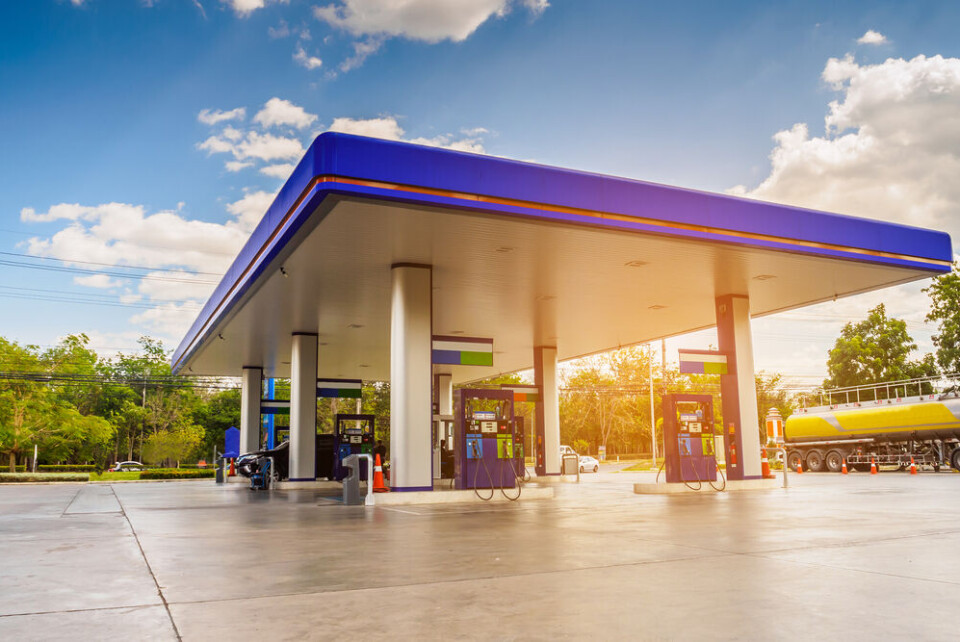-
New Paris-Jersey direct flight to launch this summer
Loganair route forms part of Channel Island’s tourism boost plan
-
Thousands of BMWs recalled in France due to fire risk
Wear and tear of motor behind recall of vehicles manufactured in 2020-2022
-
Death of right-wing protester in Lyon sparks fears of further political violence
Quentin D, 23, died after reportedly being ambushed by far-left activists near site of political conference
Drivers tell how they fell victim to fuel station scammers in France
Good samaritans offering to help stranded drivers are left to pay for excessive fuel costs

A new scam at petrol stations has left drivers in France on the lookout, as fraudsters seek to take advantage of people’s kindness to take their fuel from them.
A number of drivers have mentioned being scammed by individuals who approach them, claiming their car ran out of fuel just before reaching the station, and asking if they can borrow a couple of litres.
Once the victim agrees, the culprits return with an XL-sized jerry can, and then – by force – fill it up before leaving without compensating the driver, who is left to foot the enlarged bill themselves.
The scam has been targeting certain hypermarkets around Toulouse, where fuel is being sold at cost price thanks to new agreements to fight rising fuel prices.
Fuel prices are continuing to rise despite the cost-price measures, and for most both petrol and gas is over €1.91 per litre in France, up around 30c from prices at the midway point of the year.
Victims recount tale
One person tricked by the scam replayed the scenario for local media in Toulouse, where the incident took place.
A couple came up to him, saying they were out of petrol but that their car was very close to the station and they just needed enough to refill their engine to reach the station and fully fill up.
“They asked me to give them a couple of litres of diesel. I was caught off guard, but given their insistence, I agreed to help,” said the victim.
However, the scammers soon returned from their car with a huge jerrycan, and instead of only taking the small amount they asked for, they filled their jerrycan completely.
“The woman grabbed the pump from my hand,” said the victim and did not give it back until the can was full.
Both her and her accomplice threatened to injure the man as he tried to take the pump back.
Another victim said the scammers’ persuasive techniques “were good.”
“They showered me with blessings for helping them,” before pulling the trick, he added.
Telltale signs
One victim said he felt “rather stupid” for falling for the scam, adding that “the whole thing should have aroused [his] suspicions.”
“They were driving a big BMW, the kind of car that must cost around €40,000 - and bizarrely, they ran out of petrol right next to a fuel station,” he added.
Drivers filling up at the pump should be wary of those coming up to speak with them when they leave their vehicle unless it is an employee of the station.
Read more: Watch out for fake housing scam popular in France in autumn
Independent pumps struggling
Both incidents took place at hypermarkets selling fuel at cost price (i.e, the price they buy it from suppliers), which have seen an influx of drivers coming to fill their cars since the announcement last week.
The decision by major supermarkets to sell fuel at cost price – combined with TotalEnergies’ €1.99 per litre fuel cap – has led to many smaller independent service stations struggling to turn a profit, however.
Almost four in five independent stations have seen a 10% or higher drop in sales, and for some, visitors have dropped off by as much as 30%.
“We're waiting for a meeting this week with Olivia Grégoire (editor’s note: Minister for Small and Medium Businesses) on the subject of compensation and the energy transition plan,” said Francis Pousse, head of the union that represents independent service stations.
Supermarkets are hoping ‘cost price’ fuel offers, technically being sold at a loss once transportation and other costs are factored in, will entice customers to shop at their hypermarkets as they fill up, overturning the losses incurred by selling the fuel so cheaply.
Smaller independent stations, however, do not have the same range of products available at their kiosks to balance this trade and still need to make a profit on their principal product – fuel – in order to keep afloat.
In the context of rising inflation, this turns would-be customers away, who opt to save money by filling up where it is as cheap as possible.
Independent stations “are not capable of playing in the big league,” when it comes to cutting fuel prices, added Mr Pousse.
Despite trying to diversify services with additional amenities like car washes, if there are no drivers to use them sales will drop, he said.
























